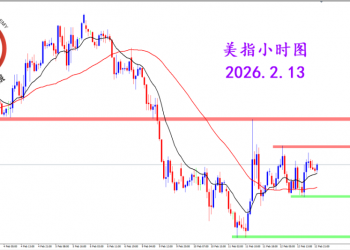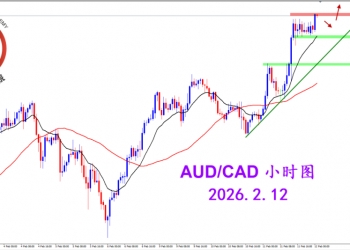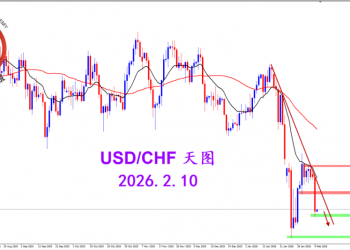Is the Best Behind Us?
Among the snares, says winning manager: bubbles in China, U.S. housing
By SANDRA WARD
An Interview With Raj Gupta -- It's hard to remember how gloomy the outlook was in February 2003, but it all came back upon rereading our interview at that time with one of the foremost big-picture investors of the day, Raj Gupta. Gupta, the principal of Manhattan's RHG Capital, adjusted his views to account for the extraordinary stimulus injected into the capital markets, made a winning bet on Japan and ended up last year with a low single-digit gain in his portfolio. While it wasn't one of his best years, he kept alive his streak of no down years since 1997, when he and his team began managing money. That achievement is the reason he saw assets double to $1 billion in the past year. His record of returning 16% a year on average after fees is also mighty impressive. When we caught up with him recently we found him once again apprehensive about the market's prospects, but for all new reasons.
"If China fades, it will have a very negative impact on Asian stock markets."
Barron's: What's your outlook?
Gupta: Most of the recovery probably has occurred. It is starting to fray at the edges and our outlook is becoming cautious. The consequence of speaking once a year is that even though our view changed in the time since we last spoke, we've gone back almost full circle to a bearish stance. The consensus view is this is a slow-motion replay of the 'Nineties recovery, which was a jobless recovery. It is turning out to be not really jobless but not full-employment, either. Wage growth is actually lower. It is the same level as it was in 1986, which was one of the lowest levels since the data has been available. But the endgame in people's minds is still the same: a virtuous circle, multiyear bull market and back to 4% on the fed-funds rate. In the next 12 to 18 months, there could be some flies in the ointment.
Q: Such as?
A: The inventory cycle is starting to peak. This is something we track ferociously. In Japan, Euroland and Korea, the cycle has peaked. The ISM [Institute for Supply Management] New Orders Index has fallen three months in a row. The OECD [Organization for Economic Cooperation and Development] leading indicator is starting to roll over at a high level. There are a dozen proprietary indicators we construct ourselves and they all give the same message: The inventory cycle is peaking. The best of the growth from the manufacturing and industrial sector is behind us. The second reason it will be hard to get a big pickup in activity in the next year or so is the potential for a bust in China's investment bubble.
Q: So it's a bubble, is it?
A: China has a massive investment bubble. The last bubble was in 1993-94, when the year-over-year growth in fixed investment hit 60%. The rate hit 52% in January and February of this year. It has been accelerating since 2002 and has gone completely berserk in the last few months. The fixed-investment share of gross domestic product was 43% in 2003, versus 36% in 1994. Not only is fixed investment growing almost as fast as it was then, but the portion of GDP it represents is about seven percentage points higher. It is common sense why this bubble is so enormous. The U.S. bubble in the late 'Nineties occurred in an economy that is extremely capitalistic and extremely profit-oriented. In China, which is still making the transition from a state-run economy to a capitalistic economy, there are no profit incentives. The stock market barely functions as a mechanism for allocating capital. In a situation like that you are going to get extraordinary overinvestment because there is no discipline to restrain investment.
Q: There is always something.
A: Eventually there is, and I'm getting to what is going to curtail it, but there is no market mechanism. Also, there's been rapid loan expansion. The government is saying they have 40% nonperforming loans in the banking system. This is at the peak of the cycle. So you have to wonder how bad the situation is going to be in China if the cycle drops. People are looking at China as an inflationary force. Yet China's output is driven by the rules of the New Economy when it comes to pricing. All the consumer products China makes are sold to the extremely price-sensitive U.S. consumer and are subject to the rules of Internet-based pricing, where there is complete transparency. But China's cost of inputs -- building the plants and the infrastructure and the machinery that is needed to make the New Economy goods -- is growing. Basic materials such as steel, copper and shipping costs have shot up. China is faced with a monstrous profit squeeze. The problem isn't the surge in global-output price inflation driven by China that everyone thinks is underway. Chinese officials are getting very serious about curbing the overinvestment. In December they made a very significant step by reducing export subsidies. In the first quarter of this year China actually had a trade deficit. Exports are no longer able to keep up with imports after the reduction of the export subsidies. The Central Bank has raised reserve requirements repeatedly. The risk is, given the profit squeeze that is already unfolding, there will be a much faster and sharper slowdown than people expect.
Q: What's the evidence of a profit squeeze?
A: You are starting to see it in the earnings of leading mainland China companies. The pure commodity producers are doing very well, whereas the commodity consumers are starting to have major margin squeezes. It also shows up in the macro data: During the 1993-94 investment bubble in China, inflation in China surged. Now output price inflation -- consumer prices -- in China are extremely dormant. China has had a disproportionate impact on the G-3 [the U.S., Japan and Europe] through commodity prices and the global industrial cycle. If China fades out, the reversal of that impact is a very good bet.
Raj Gupta's Pick....
Yield
30-Year Treasuries
5.22%
...and Pans
Company
Ticker
Recent Price
Yahoo! Japan
4689 JP
?,190,000
Softbank
9984 JP
?,150
Australian Dollar
--
$0.73
Value
Hang Seng China Ent (H-Share)
4503.94
Q: So what are the implications of a China fadeout?
A: If China fades, then the industrial cycle globally -- the inventory cycle -- accelerates on the downside. It will have a very negative impact on Asian stock markets because there is a big China premium built into all the Asian stock markets. It will have a very negative impact on Hong Kong. The extremely inflated prices for commodities will go down very substantially. It will be quite helpful in removing some of the fears of inflation that are dominant right now in the fixed-income markets of the G-3 countries.
Q: You aren't worried about inflation in this country?
A: Now that the economy seems to be behaving in a fairly normal fashion, it is not unreasonable to expect the core CPI [consumer-price index] to also be at a normal level. That it was so far below normal levels earlier this year was probably unsustainable given the fact that the economy was returning to a more normal path. The core CPI was stuck around 2% to 2? for quite a while in the late 'Nineties and the early part of 2000. It has risen from 1.1% to 1.6%, so it is on its path to normalcy. Central banks are extremely focused on the CPI, which barely budges. The place to focus on is asset prices, not consumer prices.
Q: What else troubles you?
A: From the beginning of 2001, real wage and salary income in the U.S. has been slightly down, while real after-tax disposable income is up almost 10%. The biggest reason for this has been the tax cuts. These tax cuts peak in the first half of 2004. There are no more tax cuts in the second half. That's a problem for growth in the second half. The corporate sector is subject to a similar reduction in net fiscal stimulus when tax incentives for accelerated depreciation for corporate investment expire at the end of this year. Barring a wild acceleration in payroll growth, there will be a meaningful market hit by the end of the year. This is a transition period from a surprisingly robust recovery to a slowdown.
Q: What about the housing market?
A: The recession of 2001 was extremely peculiar in many respects. It left two severe imbalances uncorrected that normally don't remain uncorrected in recessions. The first severe imbalance is U.S. house prices. House prices remain extremely elevated even after the recession. House prices could be as much as 20% overvalued nationwide. In the fourth quarter, house prices nationwide rose 15% on an annualized basis. In the recession of the early 'Nineties, house prices were barely changed.
There is a decent relationship between the job market and house prices in the U.S. House prices are significantly elevated currently versus the employment situation. Strength in the labor market could close the gap between house prices and job growth but lead to a normalization of interest rates at the same time. That will dramatically impact house prices and affordability, and lead to some weakness in house prices. However, if the labor market fails to improve, there will be a massive new deflationary force as house prices start falling under their own weight, and that is why there is no easy way out of the situation. Either way, there will be some pain.
Q: Isn't it a stretch to say home prices will fall? We have never seen that happen except in the 'Thirties.
A: That is correct. But we've never seen such a big gap between house prices and employment. Maybe we aren't underemployed. That's possibly why there's little wage growth. The Internet, which wasn't a factor in the last recession, has made services outsourcing possible. There will be some improvement in the labor market given the profit rebound in the U.S., but it could be disappointing and it may not have the same vigor it did in the late 1990s. That would make it harder to close the gap between house prices and the labor market.
Q: Do you think the threat of the Federal Reserve raising interest rates is a red herring?
A: It is a red herring. There is a possibility because of the extraordinary volatility in the payroll data, and the financial markets' fixation with the data, that the Fed might be scared into a tightening or two. But the Fed can't control the global inventory cycle, the China investment bubble or U.S. fiscal policy. The slowdown that is unfolding should be evident by the end of this year.
Q: What about the current-account deficit the U.S. is running?
A: That's the other serious imbalance. Since the beginning of the 19th century in the U.S., the current account has ranged typically between a 3% deficit [of GDP] and a 6% surplus. Most of the deficits the U.S. has run were in the 19th century, which makes enormous sense because then the U.S. was the world's emerging market. Starting in the early 1980s, the U.S. deficit began to widen again. It widened to almost negative 4% in 1985-86 and now it is at negative 5% to 5?, and possibly headed to negative 6%. This is a deficit that is unprecedented, and it puts pressure on the dollar. The U.S. is importing about $105 billion worth of imports a month and it is exporting roughly $63 billion. What is needed is a growth adjustment where the U.S. grows significantly less than its trading partners. The U.S. is growing at 6% nominal GDP, Japan at zero, Euroland at 2%, and so unless you can envision a fantastic acceleration in growth in our trading partners, there is really no way to close the gap in the short term. The decline in the dollar since 2000 has been substantial but still modest compared to what happened in 1985. This tells me the dollar could fall a lot further.
Q: How about some investment ideas?
A: Shorting Hong Kong is the most straightforward way to play a slowdown in China. This could result in pretty severe problems for everything China-related, and Hong Kong is the closest you get to that. Not only is China slowing its economy down, it is also flooding the stock market with equity issuance. They are expected to issue $20 billion in equity this year. To put this into perspective, the entire capitalization of the H-share index, which is an index of Chinese companies listed in Hong Kong, was $20 billion at the beginning of 2003.
Q: What else?
A: There could be a vicious correction in Japan. The extremely overheated Nikkei over-the-counter index is up about 100% from its 2003 low. It has gone up 37% this year. When things rise that crazily, the end is near. There are a couple of Japanese stocks that are very interesting on the short side. Yahoo! Japan's valuation is laughable. It is trading well over 100 times forward earnings assuming a growth rate of 50%. Its basic businesses and its growth rate are best compared with U.S. Internet stocks such as eBay. On that basis, its P/E ratio is 2?times those companies. One reason the stock isn't coming under pressure is it is very hard to borrow shares in order to short the stock. There are some changes coming in Japan that will make borrowing easier, and if something along those lines unfolds, that could have a pretty big impact on the Nikkei over-the-counter index.
Q: What's the other stock?
A: Softbank. A big chunk of Yahoo! Japan is owned by Softbank and another big chunk is owned by Yahoo!, which in turn is partly owned by Softbank. Yahoo! Japan's inflated price is now accounting for a significant chunk of Yahoo's value. Yahoo! Japan and Yahoo! are most of the value in Softbank. Softbank has spent a lot of cash building a DSL [digital subscriber line] business for broadband access in Japan, which has been a cash guzzler. Subscriber growth is starting to slow, and it still has yet to turn a profit. In Japan, there is a real question whether broadband access through DSL or cable is a very good long-term model for two reasons: One, the Japanese telecom company NTT is already rolling out fiber-optic technology, which could be the endgame for broadband. It is expensive now, but the cost will come down. Also, Japan is already well into 3G [third generation] mobile telecommunications, and further advances in 3G could be competitive to broadband. Softbank has one losing business and stakes in Yahoo! Japan and Yahoo! That's it. It has a bunch of small venture- capital investments and some debt.
Q: How about another idea?
A: There is one other story in Asia that I think is very interesting: Shorting the Australian dollar. Australia is one of the highest-yielding currencies in the developed world. It has a yield over 5%. There is an enormous amount of hot money parked in the Australia dollar. Australia's Central Bank raised rates twice and that got people very excited. But Australia has a monster housing bubble, and housing activity has begun to roll over. That's typically been followed by house prices rolling over. Consumer-debt service in Australia is at record highs despite low rates. It is a more precarious situation than in the U.S. The Australian dollar recently traded at 80 cents to the U.S. dollar, almost as high as it has ever traded since becoming a free-floating currency about 25 years ago. Its current-account deficit is 6% of GDP. Australia is a big commodity exporter. A big chunk of the commodity exports go to China. There is a perfect link between a China slowdown and a commodities slowdown. The story becomes really interesting if the housing market starts to wobble meaningfully, because that will truly change the stance of Central Bank policy potentially at some point to ease rather than tighten, and then you could have a pretty severe downward adjustment to the Australia dollar.
Q: What would you be buying?
A: The only real place to be long is fixed income, especially after the recent backup in yields. The market is pricing in a reasonable degree of policy restraint from the Fed, which could easily prove to be incorrect. I know I said the same thing last year and I'll use the same example: If one had bought 30-year bonds yielding 5%, when the stock market was down 50% from its highs from 1929 to 1932, you would have outperformed the stock market when the bonds matured. Amazingly, there was a wild recovery last year, and the 30-year-yield was unchanged most of the year.
Q: What's your view on energy?
A: In the current setting, OPEC gets to set the price of oil at a level that suits them. That's the compromise between OPEC and the rest of the world for allowing the rest of the world to do what they want in the Middle East. Until the dynamic changes or you get a demand shock, you are stuck with oil at these prices, which is clearly a negative for consumption in the G-3.
Q: Thanks, Raj. |
 2026.2.13 图文交易计划:美指持续震荡 等1198 人气#黄金外汇论坛
2026.2.13 图文交易计划:美指持续震荡 等1198 人气#黄金外汇论坛 2026.2.12 图文交易计划:多头持续挺进 澳1213 人气#黄金外汇论坛
2026.2.12 图文交易计划:多头持续挺进 澳1213 人气#黄金外汇论坛 2026.2.11 图文交易计划:磅加坚决阴线 适1332 人气#黄金外汇论坛
2026.2.11 图文交易计划:磅加坚决阴线 适1332 人气#黄金外汇论坛 2026.2.10 图文交易计划:美瑞大幅下跌 等1241 人气#黄金外汇论坛
2026.2.10 图文交易计划:美瑞大幅下跌 等1241 人气#黄金外汇论坛